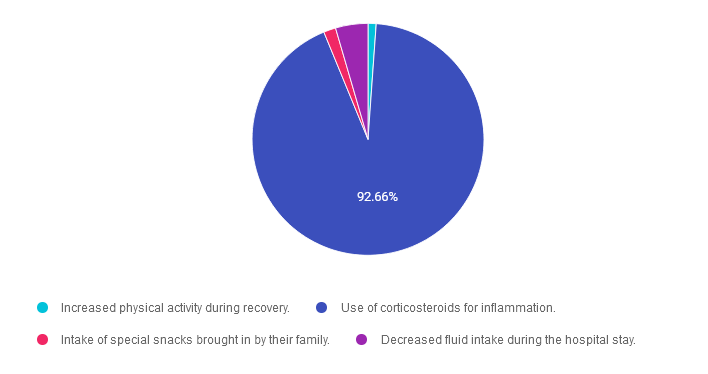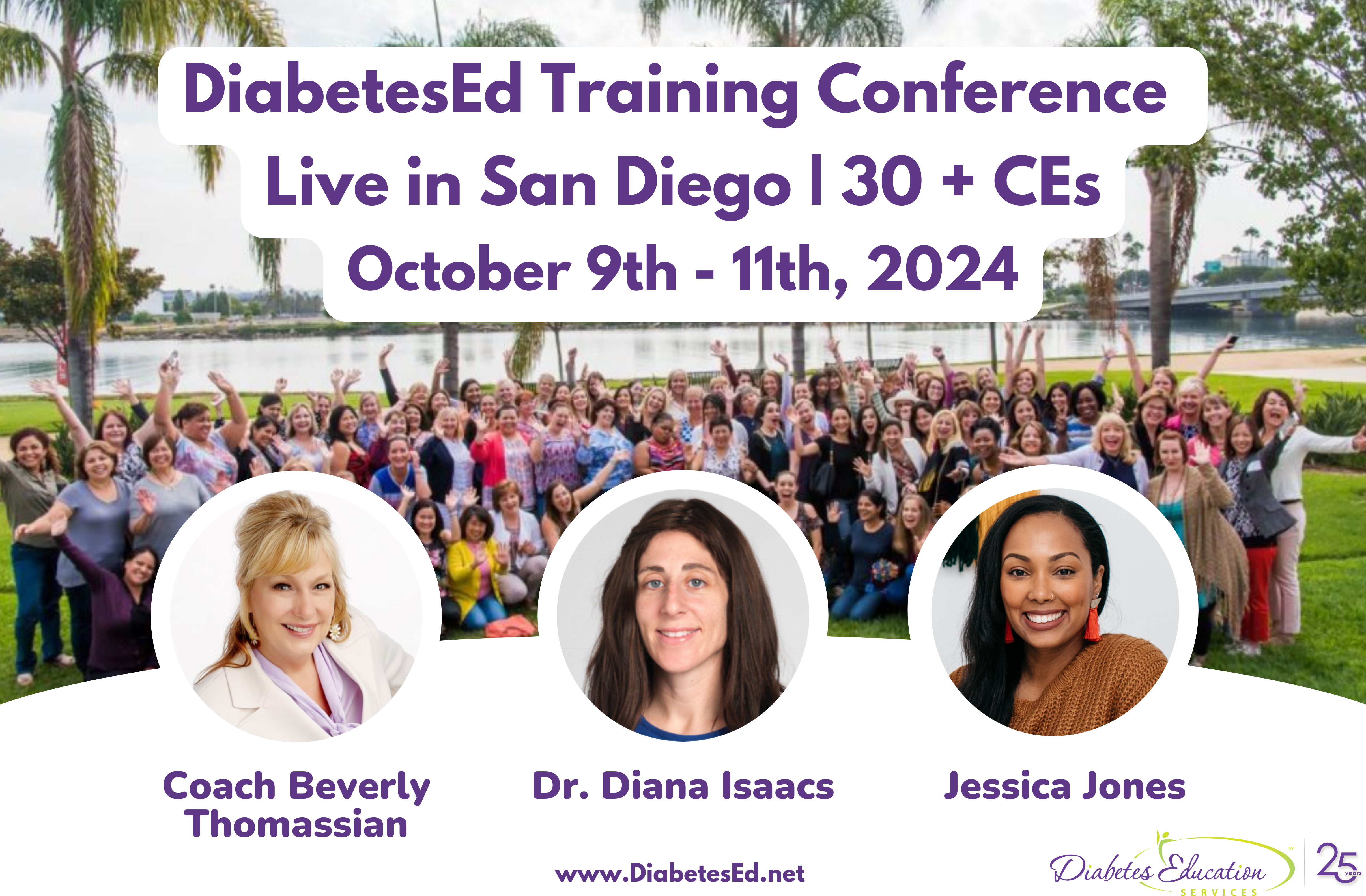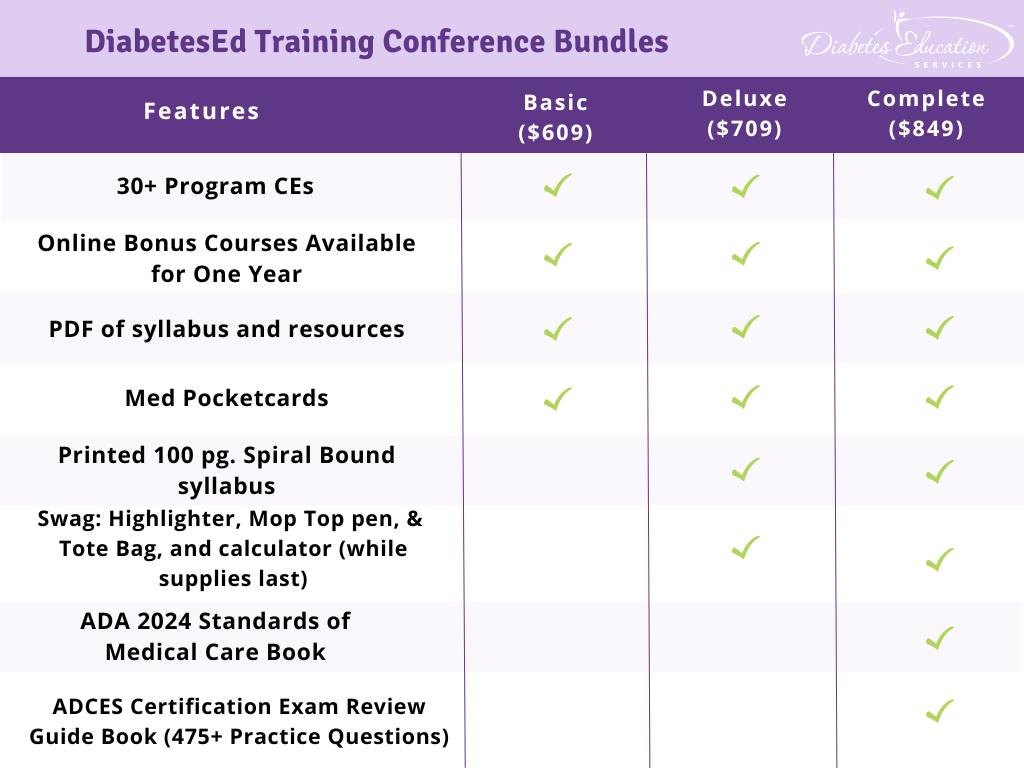For last week’s practice question, we quizzed participants on why JR’s blood glucose is elevated. The majority of respondents chose the best answer. We want to clarify and share this important information, so you can pass it on to people living with diabetes and your colleagues, plus prepare for exam success!
Before we start though, if you don’t want any spoilers and haven’t tried the question yet, you can answer it below: Answer Question

Question: During a hospital stay, JR, who has no prior history of diabetes experiences elevated blood glucose levels.
Which of the following factors is the most likely cause of this hyperglycemia during hospitalization?
Answer Choices:
- Increased physical activity during recovery.
- Use of corticosteroids for inflammation.
- Intake of special snacks brought in by their family.
- Decreased fluid intake during the hospital stay.

Getting to the Best Answer
Answer 1 is incorrect. 1.13% chose this answer. “Increased physical activity during recovery.” Physical activity would most likely contribute to lowering glucose levels.
Answer 2 is correct. 92.66% of you chose this answer. “Use of corticosteroids for inflammation.” GREAT JOB. The vast majority of you chose this best answer. Steroids are notorious for increasing insulin resistance and contributing to hyperglycemia.
Answer 3 is incorrect. About 1.69% of respondents chose this. “Intake of special snacks brought in by their family.” While snacks may cause an increase in blood glucose, steroids pack a much more potent glucose raising punch.
Finally, Answer 4 is incorrect. 4.52% chose this answer. “Decreased fluid intake during the hospital stay.” While dehydration is often co-associated with hyperglycemia, it is not likely to cause extreme hyperglycemia. The better answer is steroid therapy as the cause of elevated blood sugars.
We hope you appreciate this week’s rationale! Thank you so much for taking the time to answer our Question of the Week and participate in this fun learning activity!
Want to learn more about this question?
Join us Live in Beautiful San Diego for our
Annual DiabetesEd Training Conference
October 9th-11th, 2024

Join Coach Beverly and Team for two and a half days of knowledge-sharing, fun, networking, games with prizes, and “aha” moments in beautiful San Diego on October 9-11, 2024.
You don’t want to miss this one-of-a-kind learning opportunity. Get away from all those daily responsibilities and immerse yourself in a fun and intensive conference with plenty of networking opportunities.
Attendees will leave this conference with new tools and a more complete understanding of the latest advances in diabetes care, from medications to technology to Medical Nutrition Therapy!
Each day, we provide a healthy breakfast, including fresh coffee, to kick off your morning. Our instructors co-teach the content to keep things fresh and lively. Plus, we play DiaBingo to reinforce key content and give away prizes. In addition, we provide plenty of movement breaks led by volunteers from the audience. Did we mention delicious lunches and a conference meeting space just minutes from San Diego Bay?
Friend Discount: 3 or more only $559-$799 (based on registration package) per person. Email us at [email protected] with the name and email of each registrant to get the discount!

Time: The course is Wednesday through Friday. Join us for breakfast at 7:00 a.m. each day. The class begins at 8:00 a.m. and ends at 5:00 p.m. on Wednesday and Thursday and at 3:00 p.m. on Friday.
- 3 Days: of critical information delivered by passionate speakers in an engaging and fun format!
- 18+ CEs: earned at the Live Seminar (RDs earn 18.75 CEs while Nurses & CA Pharmacists earn 22.75 CEs)
- 10 Bonus Online Courses, Earn 10+ CEs: As a course attendee, you automatically receive a bonus online course bundle of 13 online courses valued at over $179. Coach Beverly carefully chose each of these courses based on student feedback on which content best helped them succeed at the certification exams and in their clinical practice. You will be given instructions after you purchase the course on how to enroll in our Online University and get started!
- Healthy breakfast all days, gourmet lunch both days and refreshments.
- E-version of the syllabus
Sign up for Diabetes Blog Bytes – we post weekly Blog Bytes that are informative and FREE! Every week we post one exam practice Question of the Week and Rationale of the Week. Sign up below!
Accreditation: Diabetes Education Services is an approved provider by the California Board of Registered Nursing, Provider 12640, and our CPEU courses have received Prior Approval* from the Commission of Dietetic Registration (CDR), Provider DI002. Since our CPEU courses received Prior approval* from the CDR, these CPEU courses satisfy the CE requirements for the CDCES /BC-ADM regardless of your profession!
The use of DES products does not guarantee the successful passage of the certification exam. CBDCE and ADCES do not endorse any preparatory or review materials for the CDCES or BC-ADM exams, except for those published by CBDCE & ADCES.









